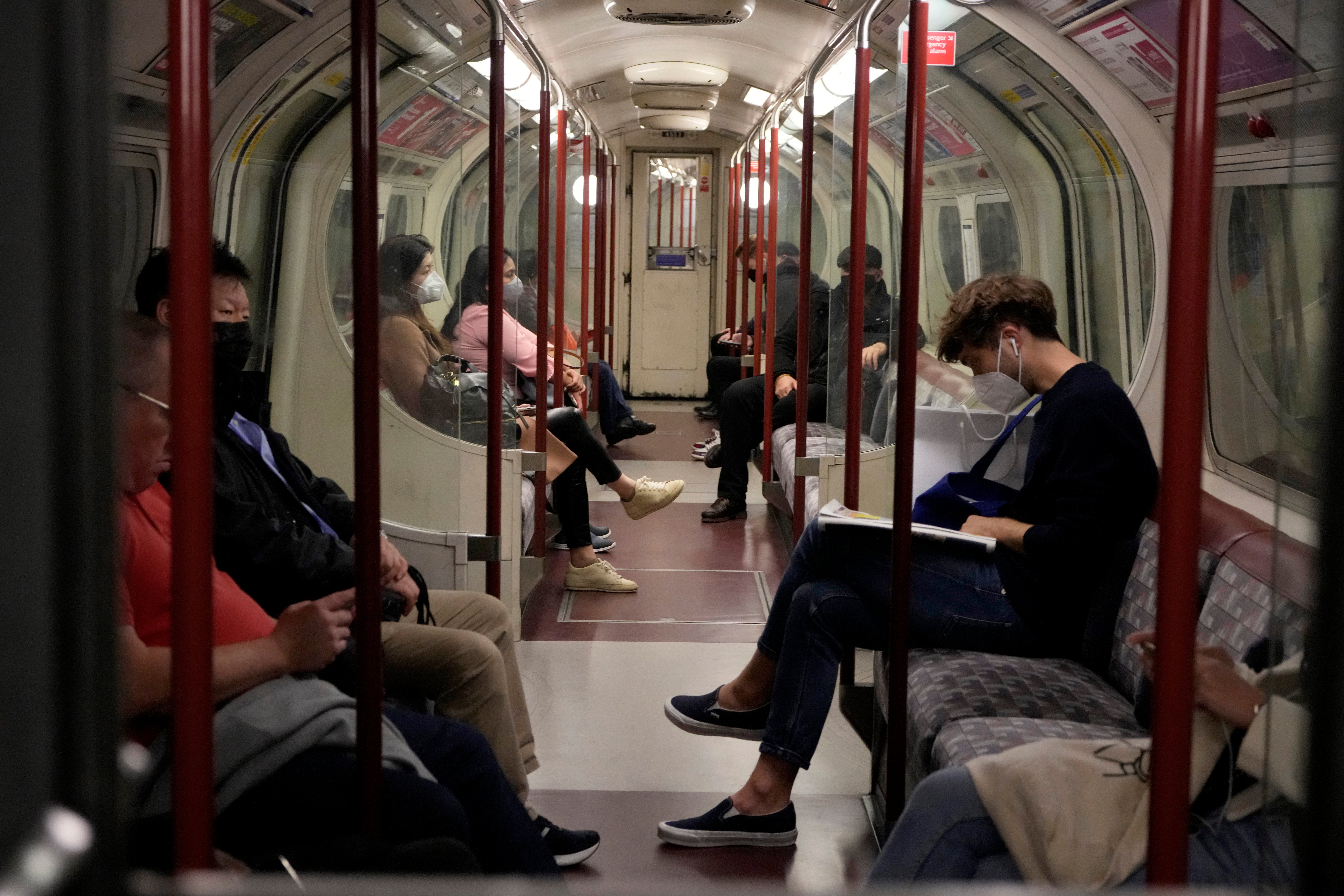UK faces calls for ‘Plan B’ with virus cases high and rising
Many scientists are pressing the British government to re-impose social restrictions and speed up booster vaccinations as coronavirus infection rates that are Europe’s highest rise still further

Your support helps us to tell the story
From reproductive rights to climate change to Big Tech, The Independent is on the ground when the story is developing. Whether it's investigating the financials of Elon Musk's pro-Trump PAC or producing our latest documentary, 'The A Word', which shines a light on the American women fighting for reproductive rights, we know how important it is to parse out the facts from the messaging.
At such a critical moment in US history, we need reporters on the ground. Your donation allows us to keep sending journalists to speak to both sides of the story.
The Independent is trusted by Americans across the entire political spectrum. And unlike many other quality news outlets, we choose not to lock Americans out of our reporting and analysis with paywalls. We believe quality journalism should be available to everyone, paid for by those who can afford it.
Your support makes all the difference.Many scientists are pressing the British government to reimpose social restrictions and speed up booster vaccinations as coronavirus infection rates, already Europe’s highest, rise still further.
The U.K. recorded 49,156 new COVID-19 cases on Monday, the largest number since mid-July. New infections averaged 43,000 a day over the past week, a 15% increase compared to the week before.
Last week, the Office for National Statistics estimated that one in 60 people in England had the virus, one of the highest levels seen in Britain during the pandemic.
In July, Prime Minister Boris Johnson’s government lifted all the legal restrictions that had been imposed more than a year earlier to slow the spread of the virus, including face coverings indoors and social distancing rules. Nightclubs and other crowded venues were allowed to open at full capacity, and people were no longer advised to work from home if they could.
Some modelers feared a big spike in cases after the opening-up. That didn't occur, but infections remained high, and recently have begun to increase.
So have hospitalizations and deaths, which are averaging more than 100 a day — far lower than when cases were last this high, before much of the population was vaccinated, but still too high, critics of the government say.
Some say Britons have been too quick to return to pre-pandemic behavior. Masks and social distancing are gone in most settings in England, including schools, though other parts of the U.K. remain a bit more strict. Even in shops, where masks are recommended, and on the London transit network, where they are mandatory, adherence is patchy.
A plan to require proof of vaccination to attend nightclubs, concerts and other mass events in England was dropped by the Conservative government amid opposition from lawmakers, though Scotland introduced a vaccine pass program this month.
Some scientists say a bigger factor is waning immunity. Britain’s vaccination program got off to a quick start, with shots given to the elderly and vulnerable starting last December. That means millions of people have been vaccinated for more than six months, and studies have suggested vaccines’ protection gradually wanes over time.
Millions of people in Britain are being offered booster shots, but critics say the program is moving too slowly. And while almost 80% of people over 12 are fully vaccinated, the number of doses delivered each day has declined sharply.
The U.K. also waited longer than the U.S. and many European nations to vaccinate children ages 12-15, and most in that age group still haven't received their shots.
“It’s critical we accelerate the booster program,” said epidemiologist Neil Ferguson a member of the government’s Scientific Advisory Group for Emergencies.
Ferguson said one factor influencing the U.K.'s high case numbers was that it has relied heavily on the AstraZeneca vaccine, “and, while that protects very well against very severe outcomes of COVID, it protects slightly less well than Pfizer against infection and transmission, particularly in the face of the delta variant.”
He also noted that “most Western European countries have kept in place more control measures, vaccine mandates, mask-wearing mandates, and tend to have lower case numbers and certainly not case numbers which are going up as fast as we’ve got.”
“But at the end of the day this is a policy decision for government to make,” he told the BBC.
Last month, the prime minister said the country might need to move to a “Plan B” — reintroducing measures such as mandatory masks and bringing in vaccine passes — if cases rose so high in the fall and winter that the health system came under intense strain.
For now, the government says it won’t change course.
Johnson’s spokesman, Max Blain, said “we always knew the next few months would be challenging.” But he said the government was trying to protect “both lives and livelihoods.”
“Because of the protections put in place by our vaccination program, we are able to be one of the most open economies in Europe,” he said. “We believe this approach is the right one. We continue to keep it under review.”
___
Follow AP’s pandemic coverage at https://apnews.com/hub/coronavirus-pandemic